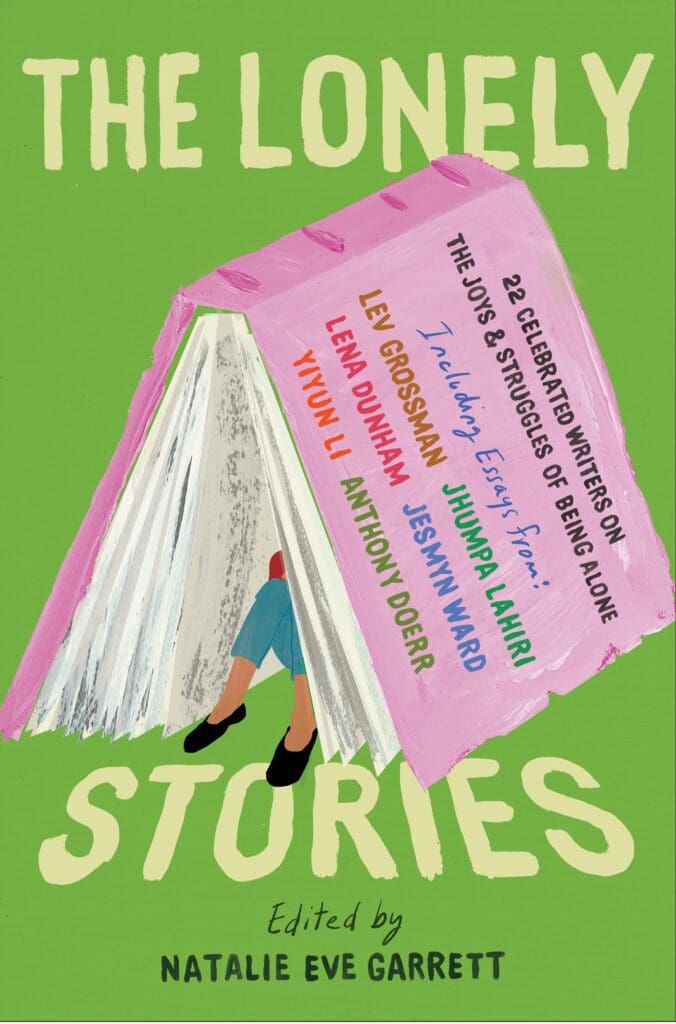Has there ever been a more appropriate time for a chronicle of writers’ individual experiences with the state of being alone than now, in the midst of an isolating and prolonged global pandemic? The Lonely Stories (240 pages; Catupult), edited by Natalie Eve Garrett, gathers essays from a diverse set of acclaimed authors—including Jhumpa Lahiri, Anthony Doerr, Lena Dunham, Maggie Shipstead, and Lev Grossman—and examines everything from struggles with personal demons such as addiction, failed marriages, and the loneliness of being an immigrant facing racial discrimination to the sense of liberation and creative stimulation that a solitary existence can provide—particularly for women, whose enjoyment of being alone has been stigmatized by society.
Editor Natalie Eve Garrett spoke to ZYZZYVA via email about the origins of the anthology and the complexities of solitude.
ZYZZYVA: You state in the introduction that you were working on this project even before the pandemic hit, but this event has obviously made its themes of isolation more relevant. What made you want to assemble an anthology on this subject?
NATALIE EVE GARRETT: I got the idea for making this book before the pandemic and in the wake of my previous book, Eat Joy—a collection of personal stories exploring the dark times and the foods that help us make it through. One thing that struck me while helping conjure those stories was how lonely the darkest periods of our lives can be, but also how much wisdom and beauty can emerge from darkness.
When I was a child, I spent a lot of time alone. I was often sick with chronic sinus infections, undiagnosed migraines, chronic fatigue syndrome, and anxiety. As a result, I strongly relate to and empathize with the loneliness of isolation. Yet for me, all that alone time that I experienced was both a source of loneliness and a wellspring of creativity. Now, as an artist and writer, I relish and often seek out solitude. I loved the idea of creating a book that would tease out the ways in which alone time can be both maddening and joyful.
Z: Many of the essays discuss how women who are alone, especially those who enjoy being alone, are looked down upon by society. We see this within the Lena Dunham, the Helena Fitzgerald , and the Amy Shearn essays, to name a few; it is almost as if choosing to be alone is taking a stand against patriarchal values. Was one of your aims for this book to subvert the assumptions made about women who are alone?
NEG: Our society tends to expect women to hold everything together, socially and emotionally. And then women who relish being alone are the witches, the misfits. What might be culturally perceived as rugged individualism in a male is perceived as failure or deviance in a woman. For the book, I wanted range in the stories; I wanted stories that would tilt us towards compassion—for women, yes!—also queer people, disabled people, and more. Being ashamed of loneliness, even aloneness, is so burdensome. Making peace with it feels profoundly unlonely.
Z: There seems to be a balance between stories that describe having a positive experience with being alone that led to a path of self-discovery, and negative experiences, in which the feeling becomes too much to bear. When putting together this compilation, did you seek to create a balance between these portrayals of loneliness and being alone?
NEG: Yes, I definitely wanted to show both the joys and struggles of being alone. Because we’ve all been alone and relished it. And we’ve all felt that ache of loneliness, too, and will continue to feel lonely sometimes. I think reading about it, from a range of contributors exploring a range of experiences, can be a way of using loneliness to connect with each other.
Z: A lot of these stories seem to be in conversation with one another: for example, the Helena Fitzgerald and Claire Dederer essays discuss how being alone can cause one to face their issues without self-delusion; and the Jean Kwok and Dina Nayeri pieces discuss the loneliness that comes with being an immigrant. Were these connections something you noticed developing as you built the anthology, and did they influence the order you placed the essays in at all?
NEG: I love and appreciate that you notice those conversations between the essays. For me, the order always comes from an intuitive place, but there was definitely a narrative arc that I was longing for—a feeling of a journey and ultimately a kind of homecoming.
Z: In Claire Dederer’s section, she realizes she has an addiction, and in Melissa Febos’ essay, she comes to understand the importance of being alone to come to terms with her own issues and codependence. Why do you feel that a state of solitude invites so many revelations about one self?
NEG: I think of solitude as the art of feeling comfortably at home within oneself. When we’re alone, and we have chosen that alone time, it almost invites reflection. Quietly facing our fears can be liberating; getting to know oneself can be a portal into beauty and discovery.

